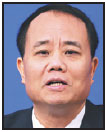
Wang Pei'an
, vice-minister in charge of the National Health and Family Planning CommissionChina is not short of labor. The population between age 15 and 64 remained at 1 billion at the end of 2015. Even by 2050, that group in China will still number more than 800 million. By contrast, the combined population in all developed countries in the United States and Europe in that age range is currently 730 million.
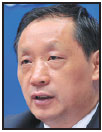
Li Jinzao, head of the National Tourism Administration
More than 80 percent of Chinese tourists do not visit scenic spots when they go on vacation. More tourists are now interested in visiting villages with well-protected natural landscapes, and they want to stay in local residents' cottages or apartments. So we need to build tourism destinations as a whole, not just focus on managing scenic spots.
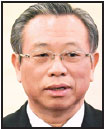
Liu Jiayi, auditor general of the National Audit Office
China will increase the supervision of State-owned assets and funds to reduce inefficiency. Identifing risks to the economy will be a priority. The National Audit Office will make efforts to solve any problems found during audits and prevent them from being repeated by the same institutions.
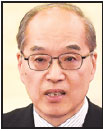
Zhang Jun, minister of justice
China will further improve its management of expert testimony in court cases and clarify the standards for trials that may result in the death penalty. DNA appraisal is crucial to identifying a killer, but we currently have more than 10 expressions about how to identify murder, which we need to clarify for judges.
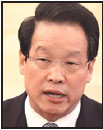
Xiang Junbo, chairman of the Insurance Regulatory Commission
Together with the Ministry of Environmental Protection, we are stepping up the pace of drafting a plan to implement mandatory insurance for environmental pollution. There are already 30 provinces, autonomous regions and municipalities carrying out pilot projects. The key areas include heavy industry, heavy metals and the chemical industry.

Xiao Jie, minister of finance
The central government will provide more financial support to regions facing fiscal challenges. It will allocate more than 223 billion yuan ($32.4 billion) to county-level governments in regions with limited revenue. Meanwhile, the total transfer payments - referring to social benefit programs run by the governments - are expected to reach 138 billion yuan this year.